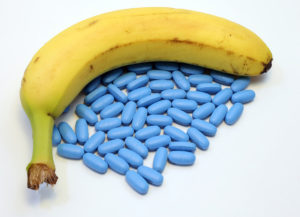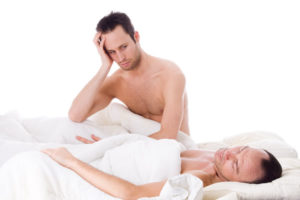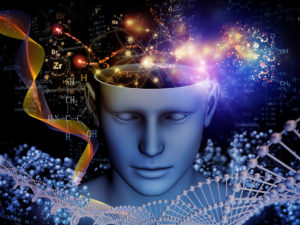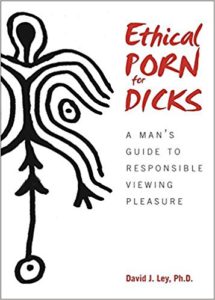Hard Times: Gay Men and Erectile Dysfunction – Causes and Cures
Background: Erectile Dysfunction in Gay Men

I’ve been a therapist who specializes in therapy for gay men for over 26 years, and one of the most frequent topics discussed in my office is about sexual anxieties, in particular erectile dysfunction (ED), sometimes in the past referred to as “impotence.” The myth is that that’s a problem only for older guys, but I help younger guys with this surprisingly frequently. Too often, doctors and therapists assume that ED for straight men and gay men are the same; they really aren’t (my often-read article on some differences between gay and straight relationships is here). Gay men have additional stressors from “minority stress” that can contribute to ED, and any therapist who is “culturally competent” in LGBT-affirmative therapy in general, and gay-affirmative therapy in particular, would do well to consider these.
The gay men I work with describe the frustration, disappointment, misgivings, and demoralization that ED causes them that affect their overall quality of life, whether single or in a relationship. It’s an important issue to work on in therapy because ED can have implications for your overall mental health and quality of life outlook. Just like the value of coming out, as gay men, we have to affirm our right to have a satisfying and rewarding sex life, even when aspects of society want to deny us that, or even deny us basic rights themselves (including the right to live). Just like in coming out as gay in the first place, asserting that we have a human right to sexual expression, sometimes we have to re-affirm that right and get help when we face the phenomenon of any sexual dysfunction (premature ejaculation, low desire, inorgasmia, inability to be penetrated, anxiety, panic, etc. – more on those later), but especially ED.
What makes ED complicated is that it can be influenced by physical, mental, emotional, interpersonal, developmental, and social factors, so the reason one guy struggles with it might be different from the reason(s) another guy does. This is one of those topics where two professionals, such as a therapist and a physician, might work collaboratively (with your written permission to share confidential patient information), each within their own discipline or areas of expertise.
ED can be lifelong (in your adult life since puberty), or acquired, meaning in relatively recent times. It can be generalized to all sexual activity, or situational to certain sexual acts or with certain sexual partners (or types of sexual partners). For example, if you never have “morning wood”, or you don’t get fully erect when masturbating, that is generally considered a more pervasive, medical-style problem that might have to do with the levels of total or free testosterone in your bloodstream, other hormonal issues, blood circulation issues to the penis, or perhaps another medical condition. If you only have erectile problems during certain types of sex (such as insertive anal), or with certain partners (you’re hard with tricks, but not with your primary partner/spouse), then that generally points to a more psychogenic origin (Hart & Schwartz, 2009).

When I work with gay men with ED in therapy in my office in Los Angeles/West Hollywood (or in my online coaching service, world-wide), first, we must ethically rule out a physical or medical problem. We don’t want to treat you in therapy if what you really need is something like testosterone replacement therapy (TRT) because of a low-T count, or because you have some kind of blood flow medical problem. In many cases, receiving a prescription for ED drugs like Viagra, Levitra, Cialis, or others will “do the trick”, although some guys have feelings about relying on a pill every time for sex. For some patients who don’t respond to the pill format, there are injectable medicines (or combinations of medicines) like Caverject, Tri-Mix or Quad-Mix, for more stubborn cases. These won’t help with arousal, but they can help with increased blood flow. So, I would encourage you to talk your general practitioner MD, or perhaps even a urologist or endocrinologist first (one of my favorite men’s functioning medical groups is Defy Medical in Tampa, Florida, that conducts telemedicine services, www.Defymedical.com). If your MD rules out any obvious medical issue, then the ED is more likely the result of an emotional or psychological dynamic, and this is where it gets complicated.
Psychological Contributors to ED

The psychological contributors to ED can be many, in men in general, but also in gay men in particular. The classic cognitive challenge in ED is about thoughts and beliefs about “performance anxiety”, and a deep belief in socially-demanding expectations of ourselves or what we “think” others have of us, such as “I must be hard, all the time, or I’m not a real man.” The connections among ED and our self-esteem, self-concept, self-confidence, and self-worth are complex, and can take some discussion in therapy to discuss and assess meaningfully. These thought patterns and core beliefs can be very individual to each person, which is why they need discussion to see exactly which dysfunctional thoughts are sustaining the ED for you.
There are many theories about the kinds of negative thoughts a guy can have that might be contributing to ED. There can be assumptions that a man must always be “hard” in order for him to be seen as sufficiently male or masculine, and while straight men can have a struggle with this, it’s exacerbated for gay men, who might have been bullied or at least criticized in their history for not being “masculine enough” by family (especially fathers), teachers/coaches, or peers (male or female). Gay men often grow up with a collective pressure to “butch it up” into gender-conforming behavior, and this pressure for many years of development can contribute to ED later on as sexual adults. Fortunately, in the current generation and times, this is changing some. For example, trans women who retain their penis and who “top” give a whole new meaning to being erect and its implications for masculinity versus femininity; there is an emerging cultural acceptance that seems to say, “my penis is my own and I’ll use it how I please” (with another consenting adult), but despite some social progress in “what makes a man, a man”, or the care and use of the penis, for many gay men, the size and function of his penis can have strong implications for his self-concept.
ED in Relationships
 Another cognitive challenge involves unconscious dynamics in a relationship. For example, a classic scenario I see in my office often with gay couples therapy is where a guy can have ED if he has an unconscious, unacknowledged anger at his partner. There have been several guys I’ve worked with who have worked in big jobs and made more money than their partners, and can feel that their partners who don’t work (or work as much) are not really contributing enough to their household, burdening them with paying all the bills. Or, we might be angry at a partner who has a drug or alcohol problem that they are doing nothing about. That can then lead to ED, because of the underlying resentment they have toward their partner. It’s very difficult to be relaxed and aroused by someone you’re angry at, even unconsciously.
Another cognitive challenge involves unconscious dynamics in a relationship. For example, a classic scenario I see in my office often with gay couples therapy is where a guy can have ED if he has an unconscious, unacknowledged anger at his partner. There have been several guys I’ve worked with who have worked in big jobs and made more money than their partners, and can feel that their partners who don’t work (or work as much) are not really contributing enough to their household, burdening them with paying all the bills. Or, we might be angry at a partner who has a drug or alcohol problem that they are doing nothing about. That can then lead to ED, because of the underlying resentment they have toward their partner. It’s very difficult to be relaxed and aroused by someone you’re angry at, even unconsciously.
Other cognitive contributors can be thoughts about low self-esteem, feeling that you’re “not good enough” or deserving of a domestic partner or even a sex partner, and so the ED is a manifestation of that lack of confidence about your value and worth as a person (which may be related to internalized homophobia, the effects of bullying or persecution, other types of personal trauma, or feelings of low self-worth for other “social” reasons, such as physical traits, appearance, perceived intelligence, talents, social status, income, penis size, etc.).
Still other guys might have Family-of-Origin or religious guilt, or internalized homophobia that makes them ambivalent about having any form of gay sex – wanting it naturally, but hesitating due to what they’ve been taught, and the internal conflict impedes a relaxed, confident sexual performance. Guys with internalized homophobia can be conflicted about what they are “allowing” themselves to have sexually, without feelings of guilt that they are betraying their parents, family, church, peers, or other social expectations of heterosexism (the assumption that everyone is, or should be, heterosexual). I discuss what it really means to be “out” as a gay man in my article about coming out, here.
ED and Thoughts/Expectations/Contributors
ED can also come from thoughts that they are “betraying” a partner who has died, and I have worked with gay widowers on this. Therapy then becomes about having closure with the bereavement process, and understanding that surviving a lost partner can include all aspects of living, including sex.
ED can also come from thoughts and expectations about one’s self as the “nice guy”, and that a “nice guy” doesn’t “hurt” his partner or exert dominance over him as a “top” in oral or anal sex. This can involve a history of social pressures that gay men must always capitulate, defer, and “lay low” in order to survive, and let others control or dominate. This therapy involves understanding the playful dynamics of dominance and submission in sex, and that sexual roles in dominance (even in BDSM play) do not actually imply hurting your partner in a serious way, but experimenting with dom/sub dynamics as form of intimacy and sexual play that can be exciting and profoundly satisfying, even if the partners have an egalitarian relationship in (what classic couples therapist Esther Perel calls) “every other room of the house, except the bedroom!”
Other guys I’ve worked with have been in recovery from crystal meth, and they have ED because they are still getting used to sober sex, and without the “extra” stimulation of meth, the sex seems boring (for about the first year in recovery; sometimes less). This can mainly be about physical stimulation from the effects of ingesting amphetamine, but it can also have cognitive implications when a person in recovery associates the rituals of using drugs with rituals in sex.
These are just a few, but are among the more common thought (cognitive) themes that I see with my clients.
Interventions for Improving ED
I always say that too many articles and self-help books focus on defining and describing problems, rather than giving practical solutions of what do to about them. While articles like this (especially blogs, which are not peer-reviewed, formal, academic articles) can be of some help (I hope!), they are not a substitute for either medical or professional mental health services (which I’m happy to provide you; more on that later).

Cognitive-Behavioral Therapy (CBT) has been known to have positive outcomes in treatment for male sexual dysfunction, where the proportion of men reporting dysfunction decreased from 71.1 percent at start of treatment to 35.6 percent post-treatment (McCabe, 2001, as quote in Hart & Schwartz, 2009). At GayTherapyLA, my associate clinicians and I only use evidence-based treatment with our clients (techniques that have proven efficacy in formal academic research), as opposed to techniques from other therapists (“sex addiction” comes to mind) that are not evidence-based practice and are really commercial malarkey (more on my ire about “sex addiction” treatment is here). While “sex addiction” is not an official clinical diagnosis (it was made up by a rather homophobic pioneer who capitalized on expensive “recovery” programs like the Betty Ford Center and capitalized on AIDS hysteria fears in 1983), ED is an official clinical diagnosis in the Diagnostic and Statistical Manual of Mental Disorders, Fifth Edition [DSM-5], which is Male Erectile Disorder, Acquired, Situational, Due to Psychological Factors (American Psychiatric Association [APA], 2013). As such, health insurance plans cover this psychotherapy as a “medically-necessary”, reimbursable treatment (as long as you have “out of network” provider benefits, which is how I work in my practice).
Some of the benefits of CBT for ED have included reducing anxiety about sex, reducing attention to sexual performance (self-consciousness), education about sexual issues, improved communication with partners, and sensate focus (ability to focus on the pleasure of the moment), as well as developing more positive attitudes about sex, more pleasure during sex, less feeling like a sexual failure, or feelings of inferiority to other men (Hart & Schwartz, 2009).
One place to start improving this process is to think less about negative thoughts about sex or erectile performance, and think more about thoughts you had during times in your past when sex was good or satisfying. This will take the focus off of whether you do, or do not, have an erection, but will get your thoughts in a more positive mindset in how it relates to sexual situations. Think of situations in your own past where you have felt (and thought) sexually confident, relaxed, comfortable, and “in the moment” of enjoyment, and revisit that time both cognitively (in your mind/imagination) and sensorally (in your body) (Hart & Schwartz, 2009).
Other thoughts for gay men can be ambivalence about being a “top”, and having anxiety about the expected performance of a top in insertive anal sex. Guys can feel a certain performance pressure, about whether they are “hard enough”, “doing it right”, “satisfying their partner (bottom)”, dominating “enough”, or even hurting a partner (especially if they are well-endowed). This focus on the self and the related anxieties are almost exactly what not to do. Mindfulness really comes into play here, with less emphasis on “evaluation” of your “performance” role until later (if at all), but in the sexual moment, to be mindful and focusing your attention on pleasurable sensations like touch, sight, sound, smell, taste, and pleasant emotions you experience such as excitement, affection, and enjoyment, and (for tops) the fun feelings of being in control or pleasuring another with our penis, body, hands, verbal commands, or erotic talk. It also means ignoring any stressful or intrusive thoughts such as worries from previous events in your day, or anticipatory anxiety of something that you may have to deal with later on. Mindfulness means being sensorally aware of what’s going on in that moment, for both yourself and your partner (Cohen, 2017).
Taking some of the pressure off yourself when you’re topping can be important. Instead of a thought like, “being a top means being in control”, experiment with a variation like, “someone else can do some of the work” or “I am actually happy when there is a balance of control” (Hart & Schwartz, 2009, p. 73). Ironically, the less pressure you’re under to perform, the better your “performance” will be.
The Role of Couples Therapy and Conjoint Sex Therapy
 If your ED is related to relationship problems, couples therapy can help. Sometimes when I provide therapy for gay male couples, if they are having sexual problems and having fights and arguments about other issues, when we work on the other issues first, suddenly their sex life improves without us necessarily doing sex therapy as such (although I also offer sex therapy in my practice). Discussing where the resentments are of each partner toward the other, discussing what is “fair” in terms of how money is managed, or how household chores are divided, and working on the relationship on what I call “four levels” of the emotional/romantic, physical, domestic, and “managing the other” (stressors from outside the relationship), (more on those four levels are in my article, here) can all help your sex life both directly and indirectly. Couple dynamics often need to be discussed, and they fall in general themes of trust/intimacy, control/dominance, role conflicts, communication skills, and ongoing support/relapse prevention (Rosen, Leiblum, & Spector, 1994).
If your ED is related to relationship problems, couples therapy can help. Sometimes when I provide therapy for gay male couples, if they are having sexual problems and having fights and arguments about other issues, when we work on the other issues first, suddenly their sex life improves without us necessarily doing sex therapy as such (although I also offer sex therapy in my practice). Discussing where the resentments are of each partner toward the other, discussing what is “fair” in terms of how money is managed, or how household chores are divided, and working on the relationship on what I call “four levels” of the emotional/romantic, physical, domestic, and “managing the other” (stressors from outside the relationship), (more on those four levels are in my article, here) can all help your sex life both directly and indirectly. Couple dynamics often need to be discussed, and they fall in general themes of trust/intimacy, control/dominance, role conflicts, communication skills, and ongoing support/relapse prevention (Rosen, Leiblum, & Spector, 1994).
These interventions for ED assume that there is no physical ailment going on, such as heart disease, diabetes, obesity, hormone problems, circulation problems, limited mobility (back/hip), or other medical causes, including psychiatric disorders like clinical depression, anxiety, bipolar disorder, OCD, ADD, or any other psychiatric condition.
 It also assumes that things are OK regarding alcohol and drug use, and that the ED is not the direct result of a substance abuse problem. While some authors (especially sex-negative ones) have asserted that “excessive” (of course, define “excessive”, right?) use of porn contributes to ED, that’s really a myth. Books like Ethical Porn for Dicks by David Ley, Ph.D., explains this further.
It also assumes that things are OK regarding alcohol and drug use, and that the ED is not the direct result of a substance abuse problem. While some authors (especially sex-negative ones) have asserted that “excessive” (of course, define “excessive”, right?) use of porn contributes to ED, that’s really a myth. Books like Ethical Porn for Dicks by David Ley, Ph.D., explains this further.
This all gives you an overview of what ED for gay men is about, and some (not all) of the ways that a therapist or coach can help you overcome it, and enjoy a more confident and rewarding sex life. For an individual consultation or for more information on services with me or others at GayTherapyLA, call or text 310-339-5778, or email Ken@GayTherapyLA.com.
References:
American Psychiatric Association (APA), (2013). Diagnostic and Statistical Manual of Mental Disorders, fifth edition; Washington, DC.
Cohen, L. (2017) Sex, Men, & Social Anxiety: Male Sexual Performance Anxiety, http://nationalsocialanxietycenter.com/2017/01/12/sex-men-social-anxiety-male-sexual-performance-anxiety/
Hart, T.A., and Schwartz, D.R. (2009) Cognitive-Behavioral Erectile Dysfunction Treatment for Gay Men. Cognitive and Behavioral Practice 17 (2010), 66-76.
Rosen, R.C., Leiblum, S.R., and Spector, I.P. (1994) Journal of Sex & Marital Therapy, 20, (2), Summer 1994.




